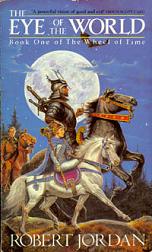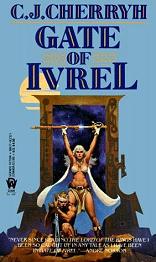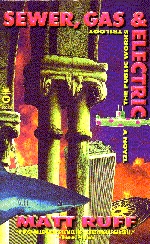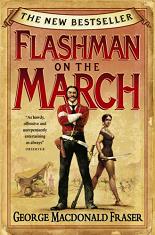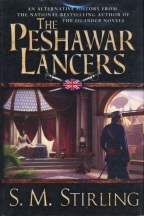
The Peshawar Lancers
S. M. Stirling
420 pages
published in 2002
S. M. Stirling is not one of my favourite science fiction writers; I can’t abide his politics and he made a less than favourable impression when he was posting at rec.arts.sf.written. And in his case you can’t really divorce the writer from his work, as his politics and personality does permeate his work. There’s the Draka series for example, where a race of Super South Africans take over a degenerate free world only for their daughters to lez up. It’s not so much that the Draka are evil and sadistic, but that you get the distinct impression Stirling is on their side.
Nevertheless there’s no denying that Stirling can tell a roaring good story, if he can keep the reactionary elements in the background and you don’t think too much about the politics of it all. Such is the case with The Peshawar Lancers, a standalone alternate history novel, set in an alternate British India.
